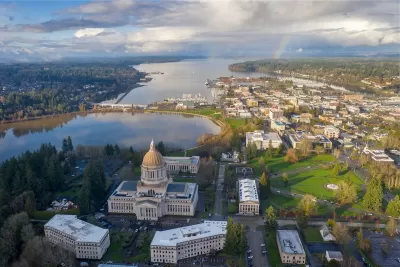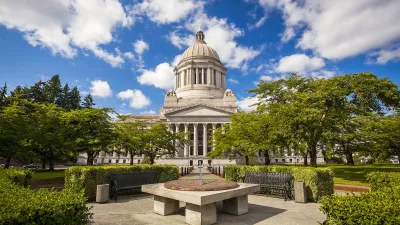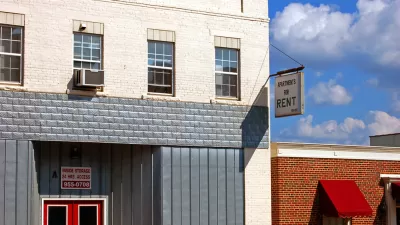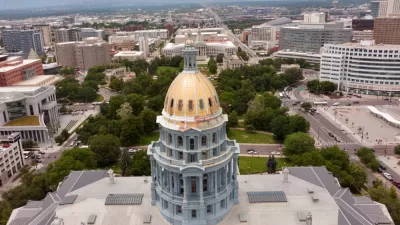Democrats are pushing for a statewide rent stabilization bill that would give renters some protections while offering more flexibility for landlords than blanket rent control policies.

Democratic Washington state lawmakers have their eye on rent stabilization in the upcoming legislative session, writes Ryan Packer in The Urbanist. “While dozens of bills intended to increase the affordability of housing will be debated over the coming weeks, passing a statewide rent stabilization bill has emerged as a major priority for the caucus.”
Lawmakers are proposing a “more measured and surgical” approach to rent stabilization that is less broad than flat rent control policies. According to Packer, “House Bill 1217 would cap annual rent increases at seven percent and prohibit landlords from raising rent by any amount in the first year of tenancy. The bill exempts newly constructed apartments for their first 10 years, existing buildings that are less than 11 years old, public housing, and small rental arrangements, such as a homeowner who only rents out their accessory dwelling unit (ADU).”
The proposed bill would also cap move-in fees and security deposits, limit increases on late rent, and require a six month’s notice for rent increases over three percent. The proposal would not regulate how much a landlord can raise the rent between tenants.
FULL STORY: Rent Stabilization Tops Washington Democrats’ Housing Agenda for 2025 Session

Trump Administration Could Effectively End Housing Voucher Program
Federal officials are eyeing major cuts to the Section 8 program that helps millions of low-income households pay rent.

Planetizen Federal Action Tracker
A weekly monitor of how Trump’s orders and actions are impacting planners and planning in America.

The 120 Year Old Tiny Home Villages That Sheltered San Francisco’s Earthquake Refugees
More than a century ago, San Francisco mobilized to house thousands of residents displaced by the 1906 earthquake. Could their strategy offer a model for the present?

HSR Reaches Key Settlement in Northern California City
The state’s high-speed rail authority reached an agreement with Millbrae, a key city on the train’s proposed route to San Francisco.

Washington State Legislature Passes Parking Reform Bill
A bill that would limit parking requirements for new developments is headed to the governor’s desk.

Missouri Law Would Ban Protections for Housing Voucher Users
A state law seeks to overturn source-of-income discrimination bans passed by several Missouri cities.
Urban Design for Planners 1: Software Tools
This six-course series explores essential urban design concepts using open source software and equips planners with the tools they need to participate fully in the urban design process.
Planning for Universal Design
Learn the tools for implementing Universal Design in planning regulations.
Ada County Highway District
Clanton & Associates, Inc.
Jessamine County Fiscal Court
Institute for Housing and Urban Development Studies (IHS)
City of Grandview
Harvard GSD Executive Education
Toledo-Lucas County Plan Commissions
Salt Lake City
NYU Wagner Graduate School of Public Service





























